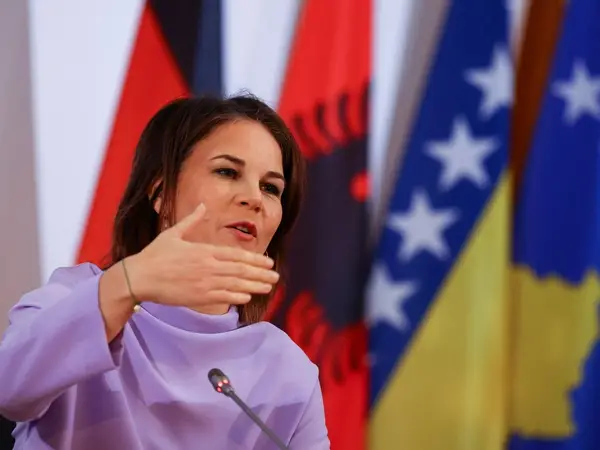International outcry over Islamic Republic’s crackdown on antigovernment protests is increasing with Germany’s new package of sanctions and measures planned by the EU.
The German parliament – the Bundestag -- passed a comprehensive package of measuresagainst the Islamic Republic following a session on the current situation in Iran on Wednesday. The ratified motion, submitted by a coalition of factions, calls on the government to support the protest movement in Iran and increase pressure on the regime in Tehran.
Describing the current wave of unrest as “the greatest challenge to the inhuman Iranian regime,” the lawmakers said Mahsa Amini’s death, which ignited the current uprising, is just part of “the systematic violation of human and civil rights in Iran for more than four decades, where women and minorities are particularly discriminated against and oppressed.”
“On an unprecedented scale, the Iranian society is protesting against the authoritarian regime, which has completely lost its basis of legitimacy and only wants to secure power with sheer violence,” read the motion, adding that all social classes throughout the country are expressing their frustration against “arbitrary harassment, oppression, a lack of transparency, bad governance, corruption...”
The German MPs also urged the government “to maintain the already increased political and diplomatic pressure on the regime in Tehran” particularly through a resolution over Islamic Republic’s Human Rights situation in the Third Committee of the UN General Assembly and in the UN Human Rights Council. The government should ensure a special session on the human rights situation in Iran and an extension of the mandate of the UN special rapporteur on Iran, they added.
They also voiced their support for further sanctions at the EU level on those responsible for the violent crackdown, including asset freezes and travel bans. Some of their other demands were aimed at supporting NGOs that document evidence of Iran’s state violence and arbitrary arrests, as well as dissident Iranians from the areas of culture, science, media and civil society.
The lawmakers also called for further examination on whether and how the Islamic Center in Hamburg (IZH) can be closed for good, calling it "the hub of the operations of the Iranian regime in Germany.” Germany has already expelled Iranian cleric Soleiman Mousavifar, who was the deputy head of the IZH, from the country for his support for Shiite extremist and terrorist organizations.
Earlier on Wednesday, German Foreign Minister Annalena Baerbock said, "We're not letting up. We stand with the men and women in Iran, and not only today, but as long as it is necessary. We bring their voices to the world. Their names are Mahsa, Nika, Abdolfazl, Mohammad, Omid or Minu. You are not alone."
Announcing that the European Union will seek to adopt new sanctions against the Islamic Republic next week, Baerbock said, "Four weeks after the death of Mahsa Amini, we've imposed EU sanctions against those responsible for the brutal crackdown on the protests in Iran. We are working flat out on the next package of sanctions. Next week we want to adopt it."
Iranian Foreign Minister Hossein Amir-Abdollahian reacted to her marks in a tweet on Thursday, describing them as meddling in the country’s domestic affairs, and warning that Tehran will give a “proportionate and firm” response to such positions. “Undermining old ties has long-term consequences. Germany can choose engagement to address shared challenges or confrontation,” he said.
The European Union already imposed sanctions in mid-October against Iran’s “morality police” and three other organizations as well as 11 officials, including the telecommunications minister, for their role in the death of Mahsa Amini and the crackdown on protests. The new punitive measures have a good chance of being approved by EU foreign ministers at their upcoming meeting slated for November 14.
European Parliament President Roberta Metsola also called on Europe to take a firm stance against the clerical regime, noting that an international investigation and further targeted sanctions will keep the regime accountable.
